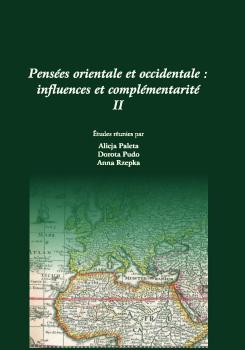Leopold Leon Sawaszkiewicz et Ignacy Pietraszewski à la recherche de l’identité orientale des Polonais .......... 157
Synopsis
LEOPOLD LEON SAWASZKIEWICZ AND IGNACY PIETRASZEWSKI’S QUEST FOR THE ORIENTAL IDENTITY OF THE POLES
In Le génie de l’Orient..., published in Brussels in 1846, Leopold Leon Sawaszkiewicz presents the collection and work of the Polish collector and connoisseur of Oriental cultures Ignacy Pietraszewski, who translated the Zend-Avesta – the holy book of Zoroastrianism – from Persian into Polish, French, and German. Sawaszkiewicz uses Pietraszewski’s rich collection of Islamic numismatics as a jumping-off point for numerous observations on the relations between the West and the East, from the perspective of the historic ties between the Poles – bound for nearly a millennium to Western Christian values – and the Turkish, Arab, Persian, and even Indian Orient, in which they searched, aside from artistic and literary inspiration, for traces of their own deep cultural and ethnic roots. This view of the rootedness of Polish culture in the universe of an apparently/actually distant imagination and mentality, makes it possible to reconsider the present conditions for honest and substantive dialogue between these different cultural and geopolitical regions. Sawaszkiewicz’s and Pietraszewski’s visions of the Orient, conceived at a time when the existing geopolitical order was confronted with the (re)birth of European national identity myths, bear witness to the active participation of Polish intellectuals in the debate on the foundations and future of Western civilization.





